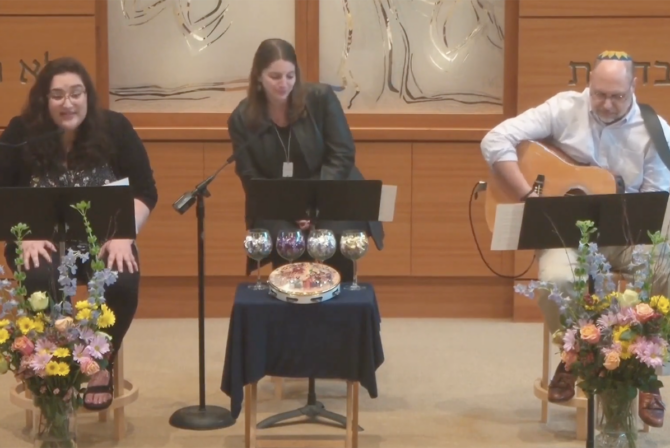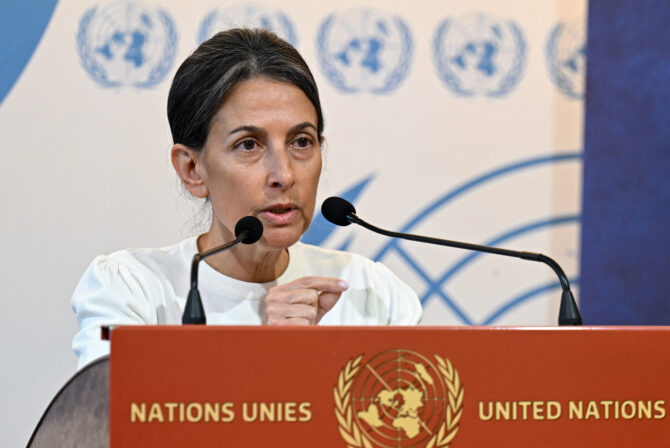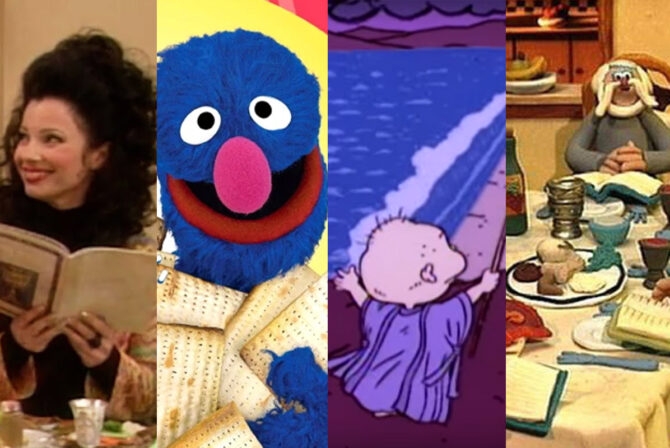I kneeled by my mom’s side as she lay at home in her bed under the care of hospice. “Bittersweet,” she said as she smiled through tears and put one hand on my small belly. That moment together would be one of our last. She died just two days later. I was eight weeks pregnant.
Prior to the very end of the year in which my mother battled cancer and then battled the side effects of the chemotherapy intended to attack that cancer, she was an active and involved nana to my niece and nephew–the kind of nana who got down on the floor to play, who sang and danced the hokey pokey, who listened on the phone with endless delight to impromptu cello rehearsals, and who worried, like any good Jewish grandmother, whether or not they brought a sweater.
My son has no other grandmothers. My husband’s mother has been quite ill for many years. Even if she was told she has grandchildren, we are not sure she would understand or remember. My husband’s stepmother, a lovely woman, has seen our son only twice.
As a child psychologist, I’ve spent time thinking about how to talk to children about death. I’ve read the literature. I’ve talked to my young clients about death and dying. I’ve advised parents. When and how do you tell them? How much do you share? What age is too young?
At only 10 months old, my son has said the words dada, hi, and hat. He understands many more. I talk to him often and purposefully. I know the more language he is exposed to, the more steadily his vocabulary will develop. I describe the mundane of everyday tasks. Mommy is folding the laundry. See, I am folding your blanket. I sing songs. We read books. I show him objects and pictures and label them. I talk to him about the activities of our day.
I tell him stories about his nana. He has been told this is the same lullaby Nana used to sing to me, this is a book Nana bought for your cousins, please be gentle with mama’s necklace it used to belong to her mommy. He has been to the cemetery and to an unveiling. He has seen his mother cry. At only 10 months old, death is a part of his vocabulary.
It is difficult to take off your psychologist hat as a parent. During my pregnancy, I couldn’t help but think about the impact my mourning might have on my growing child. Would the increased cortisol levels associated with my stress impact his brain development in utero? Would I develop postpartum depression, be a less responsive parent and, in turn, increase his risk for later adjustment problems? While important, these questions were academic. They shielded me in some way.
It wasn’t until a late afternoon in a Pottery Barn Kids store that my veil of child psychologist was removed, revealing a vulnerable expectant parent. Very pregnant, I stood among muslin receiving blankets and cotton crib sheets, wavering about whether or not to splurge on the more expensive of my choices of cribs. “It makes a terrific grandparent gift,” the salesperson said. “Tell your mother to get it for you.”
I held my breath. My heart sank. I wanted to scream, “My mother DIED!” But I didn’t. Instead, I mustered up all I could to smile, nod my head, and hand the friendly young man my credit card. I was going to have to do this alone—become a mother without one to guide me, without one to give me words of wisdom along the way. I would have to find my own words. And I would have to tell my son, who was not even yet able to live outside of the womb, about death.
Pregnancy, it seems, is all about life, about new beginnings. There are parties and presents and comments about glowing faces and beautiful growing baby bumps. And I got all of those. And I am grateful. But bringing life into this world is also a stark reminder that life can be taken away. While I focused on the life growing inside me, I also thought about death and about how I would introduce this vocabulary of dying to my son.
Our instinct is to shield children from things that might make them sad or scared, those things that might hurt, sting, or burn. This instinct is generally a good one. Children’s ability to understand complex topics such as death and dying is limited and varying. But to avoid the topic altogether is to do a disservice to our children. By not talking to our children about death, we have no way of knowing what they know and what they do not. By not talking to our children about death, we might foster misconceptions, fears, or worries. By not talking to our children about death, we do not give them a vocabulary to communicate and comprehend. People die. Pets die. Flowers die. They will see death on TV. They will hear about it in fairy tales. They will act it out in their play. Our children will need to know. But how much? When?
For me, this conversation would begin immediately. It would begin simply and purposefully. It would begin with a picture by my bedside in the hospital recovery room and with a brief introduction. “Max, this is your nana. She knew about you and loved you very much.” It would begin this way because it needed to. By not talking to my child about loss, I would deny a part of my experience of mourning. My healing process, I knew, would be critical to my ability to be the kind of mother I wanted to be. The one who responded warmly and appropriately to her baby’s cries. The one who got down on the floor to play with her child. The one who sang the hokey pokey. The one who listened with delight. The one who worried if he wore a sweater. By not talking to my child about death–about how I lost my mom, about how I carry her memory and her love–I would deny my son this experience of life and all that he would inherit.
My conversation with my son will continue throughout his life. It will change in context and in content. It will shift to meet his developmental stage and needs. But, from the very beginning, he will have a vocabulary to talk about it, to contemplate it, to ask the questions he needs to understand it the best he can. And I’ll answer, bittersweetly.
Like this post? Get the best of Kveller delivered straight to your inbox.







